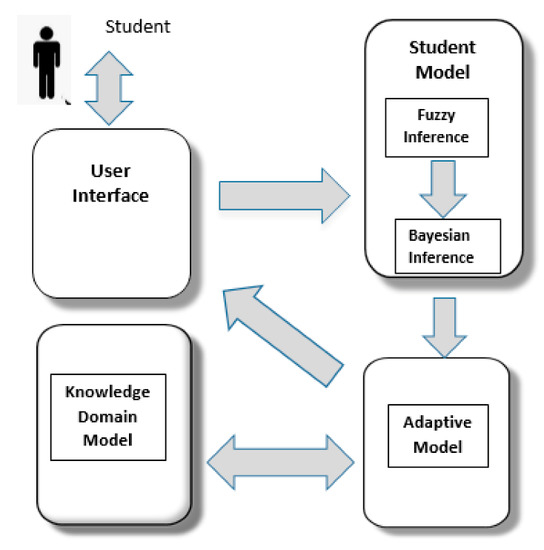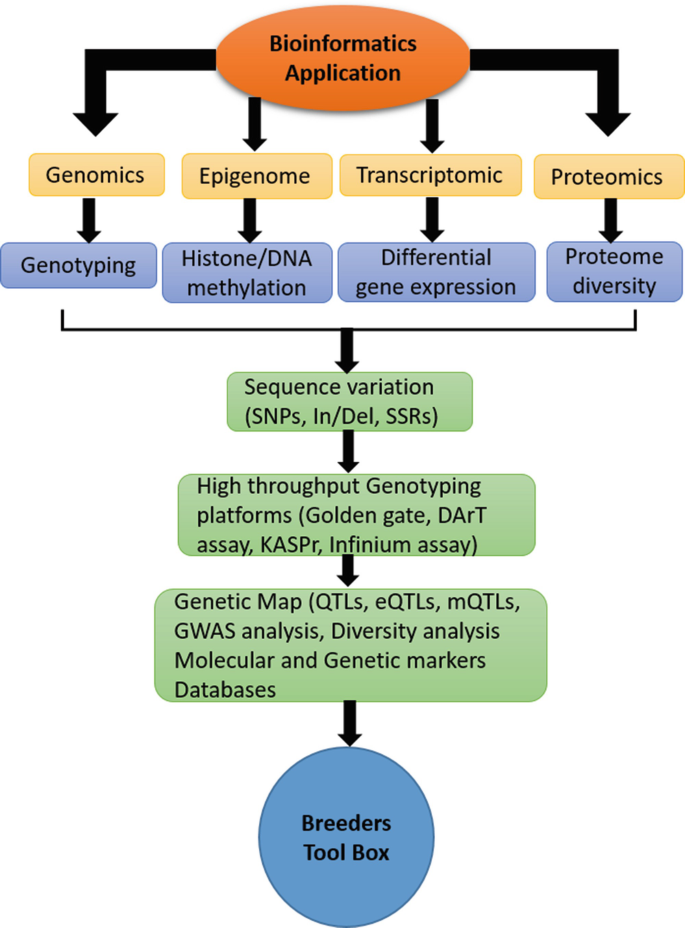Examine This Report about Bioinformatics Tutor
Examine This Report about Bioinformatics Tutor
Blog Article
The Definitive Guide to Bioinformatics Tutor
Table of ContentsNot known Incorrect Statements About Bioinformatics Tutor Not known Incorrect Statements About Bioinformatics Tutor The 10-Minute Rule for Bioinformatics TutorBioinformatics Tutor for DummiesBioinformatics Tutor Can Be Fun For Everyone
Of the total participants entailed in the training, 80% were trainees from public greater education and learning institutions, while the continuing to be 20% came from exclusive organizations. To get approved for a certification of participation, pupils were required to participate in a minimum of 90% of the complete training hours. As a result of this demand, an outstanding 95% of the individuals successfully gotten their certificates, having not just met the minimum attendance requirements yet likewise finished all assigned activities throughout the training.
Throughout the height of the COVID-19 pandemic, especially between June and August 2020, the task team was charged with arranging specialized training in bioinformatics. This training was especially targeted at students from the research study group Nucleus for Research in Applied Computing at the Federal College of Pará (UFRA) The adjustment to remote discovering platforms because of the pandemic created a possibility to explore brand-new teaching approaches and electronic tools that improved both reach and performance.
This training course was created to supply an available yet comprehensive overview of Artificial Knowledge techniques, specifically as applied in bioinformatics (Bioinformatics Tutor). This virtual layout allowed participation from pupils across Brazil, many of whom could not have had the chance to attend in-person sessions.
Bioinformatics Tutor for Dummies
A noteworthy feature of this program was its focus on hands-on discovering. Approximately 50% of the complete training hours were dedicated to functional tasks where students developed smart models and applications in a series of scientific domains, including genes, molecular biology, and ecological data evaluation. Extensively used structures and devices such as Spyder, Google Colab, Jupyter Notebooks, and Orange were integrated right into the coursework. These systems enabled trainees to participate in real-time information manipulation, design training, and formula experimentation.
Sixty of them were connected with numerous greater education establishments in the state of Pará, while the remaining twenty came from institutions situated in five other Brazilian states. By presenting Artificial Knowledge in a functional and appropriate context, the effort offered to connect the space between concept and real-world application, giving pupils with a solid foundation for future research or work in the area.
The training initiative formed part of a more comprehensive scholastic outreach effort known as the Bioinformatics when driving project. This task has, throughout the years, introduced loads of trainees to the world of bioinformatics and computational biology. The occasions held under this umbrella initiative have actually occurred throughout several regions and years, as summed up in Table 1 (Listing of events, places, years, and total varieties of trainees and teachers)
Numerous of these teams, originally brought together by their participation in training occasions, have because gone on to create independent clinical research study in collaboration with local scholastic organizations. The training not just fostered scientific thinking within the context of bioinformatics however likewise sparked collective partnerships that expanded beyond the training environment.
What Does Bioinformatics Tutor Mean?
The job itself was conceived and arranged by MB and RR, that supervised the planning and implementation of each step. Lectures were delivered by a multidisciplinary team containing MB, FA, EF, KP, JS, DM, SN, LP, LG, RR, ih, and a/c. The very same group, omitting IH and RR, also functioned as tutors for the functional training modules. Financing for the project was supplied via the grant 88887.200562/ 2018-00 from CAPES. The authors extend their gratitude to everybody who added to the awareness of this job, whether directly or indirectly, considering that its beginning.
The Federal College of Pará's Office of Study (PROPESP/UFPA) additionally supplied financial backing, particularly for the manufacturing of the last manuscript. The writers state no financial or commercial problems of rate of interest that might have affected the study. In addition, all point of views and interpretations expressed in this write-up are entirely those of the authors and do not necessarily reflect those of their respective organizations, the publisher, editors, or customers entailed in the publication procedure.

Bioinformatics Tutor Fundamentals Explained
From a pedagogical perspective, the teaching method made use of in the training was intentionally interactive. Courses were performed in a fashion that encouraged pupil engagement and conversation, going past memorizing memorization to discover how concepts are created, used in life, and evaluated in academic settings. The instructional viewpoint focused on supporting both solid and battling students, offering personalized assistance, and building confidence through sustained mentorship and patience.

Each group, including around 36 participants, was sustained by 3 mentors-- many of whom were postdoctoral scientists with specialized knowledge. These mentors not just aided design the team projects however additionally promoted their implementation, guaranteeing that each research inquiry was both pertinent and properly difficult. The objective was to click this link supply a naturally realistic context that individuals could discover through open-ended objectives and accessibility to curated datasets.
For additional understandings right into the technique and end results of this project-based discovering technique, readers are routed to S1 Text, that includes detailed descriptions of the instructional framework, analysis techniques, and job themes used in the training sessions.
Bioinformatics Tutor - An Overview
Of the total amount participants included in the training, 80% were students from public higher education institutions, while the remaining 20% came from private establishments. To qualify for a certification of involvement, trainees were needed to attend at least 90% of the total training hours. Significantly, past the trainees that enrolled in the training sessions, seven seasoned teachers took part in providing the courses, while three devoted study professors coordinated the overall training process. Approximately 50% of the total training hours were devoted to functional tasks where trainees built intelligent designs and applications in an array of clinical domains, consisting of genetics, molecular biology, and ecological data analysis. The training not try this web-site only fostered scientific thinking within the context of bioinformatics however also sparked collective relationships that extended past the Going Here training setting.
Report this page